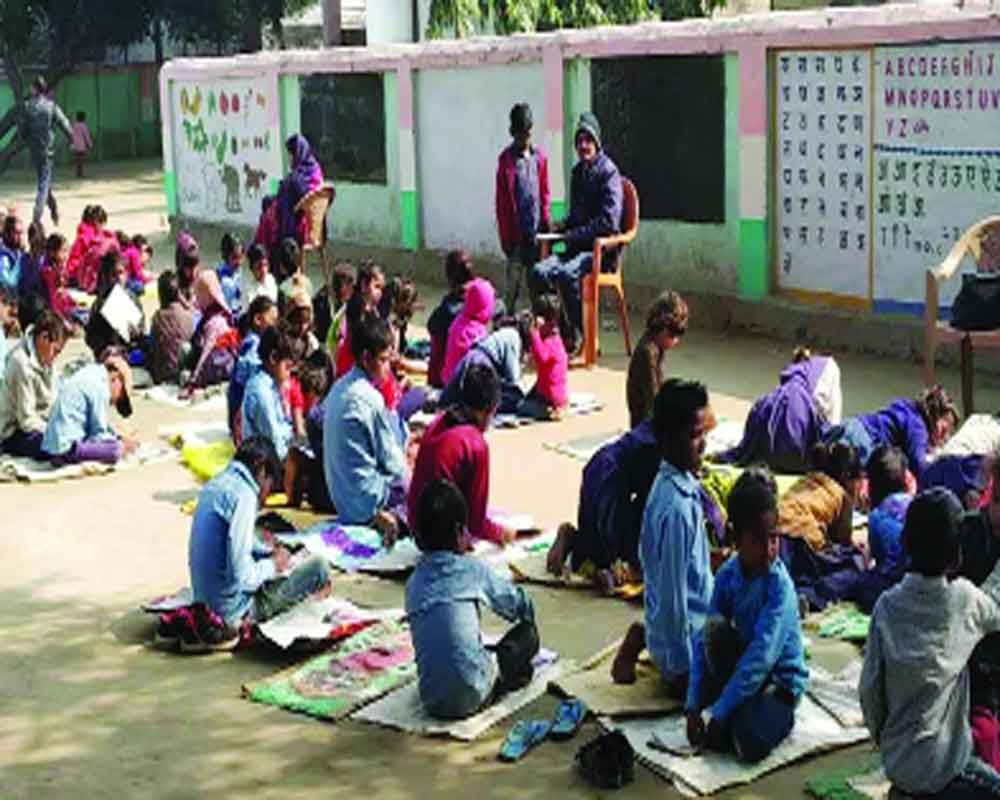Bihar Government's bold education initiatives combat global capital's influence on marginalised, writes Keyoor Pathak
The failure of the Bihar Government on countless fronts in the last few decades cannot be dismissed, and an exclusive example of the failure can be perceived in the law made without any proper preparation and study against liquor. Apart from this, there are many issues where the Government has demonstrated its substantial weakness such as rural migration, agriculture et cetera. However, there are some steps taken by the Government that must be appreciated without any political prejudices, this is the initiative on the subject of education in the State. Today, when the market is bent on taking over education completely in almost the entire India, the effort of the State to patronise education on such a large scale can be considered a very bold step. In a way, this is a counter by the State to global capital. When the educational institutions are coming out of the hands of the Government and going into the hands of the corporates, the work done by the Bihar Government on the education system is in a way like the return of the welfare State. Such efforts must be made on health services too. However, in recent years, its big beginning can be seen in Delhi where it was claimed that Government school education has been taken to a prestigious level, and this claim should not be denied. But through education reforms in Bihar, the State is again visible in its public-concerning role, albeit partially, only in a few subjects. Bihar is one of the poorest States in the country, and social and economic inequality is also at its peak. Then in such a situation, the model of economic development of putting education in the open market will push marginalised people even further to the margins.
It has always been a crying question of how much space will be left for the rights of education of the marginalised sections while in most of the private schools are functioning like money making industries. And it should be understood that private schools do not flourish because of their quality, rather the failure of the Government schools gives them an opportunity to spread their footing. Unfortunately, Government schools have been continuously neglected by the State for decades. And all this did not happen spontaneously, rather there was a well-planned conspiracy of the Global Capital behind it that firstly let the Government schools be destroyed and then the private schools would automatically get legitimacy. In a way, the society has given up all its expectations from Government schools, they have accepted that children have no future in Government schools. Consequently, social psychology developed which did not take the availability of quality education as a serious question. If it had been taken, there would have been pressure on the Governments and they would have worked on the facilities and quality education in the Government schools, but this rarely happened. The Bihar Government again made Government schools a part of the election manifestos of political parties.
We saw some of the work that the Government has done to improve the education system. For example, there was a severe shortage of teachers in schools for a long time, to fulfil teachers were recruited on a large scale. The appointment of more than one lakh teachers is enough to show the seriousness of the Government’s vision on education. Undoubtedly a large part of the budget would have been spent on this. If we talk about infrastructure, the schools of Bihar had turned into ruins. It was difficult to say which building would collapse and when. Children were often forced to sit in the open field or in the veranda. But to fix all these things the Government allocated a huge amount. Allotment of the books, dresses and bags and water bottles for children along with other materials not only attracts them towards schools but also reduces the financial burden for the parents, especially for those who are barely able to earn their living by doing farm labour. For urban elites these things might be futile but for the rural people this is not affordable by their own income.
We all had seen children carrying books in their hands or in dusted polythene or in torn cloth (jhola), but now they had beautiful bags in their hands and instead of torn half-naked clothes on their bodies, uniforms were shining on them. It was well known fact how little attention they paid to the children.
The Government has strictly forced the teachers to be responsible for their duties towards children, which was not an easy task, years of Government negligence had made them indolent. Some other small and big efforts can be seen there to control the deep-rooted corruption in the education system. A pertinent aspect which perhaps sought for more attention that is ‘Mid-Day Meal’. This should be allowed to continue in a smoother manner and at the local level merely, any interference by any external agency is likely to lead to many other complications. Amidst all these achievements, the biggest problem visible is, how to continue this reform in the future, because there still seems to be a lack of proper mechanism for this; and in the absence of a mechanism all efforts and achievement may be proven futile.
(The author is Post-Doctorate from CSD, Hyderabad and Assistant Professor in Department of Sociology, University of Allahabad; views are personal)


























